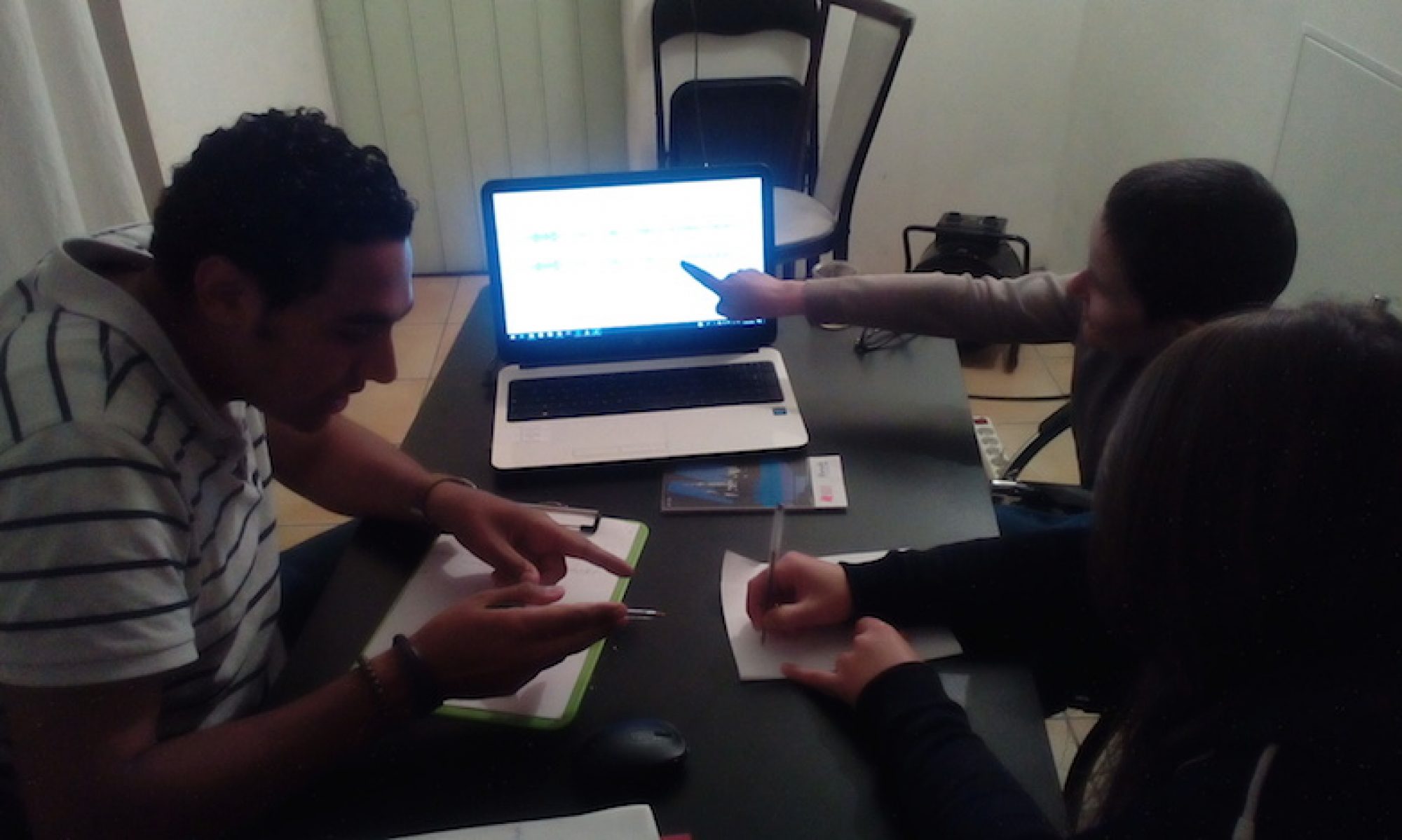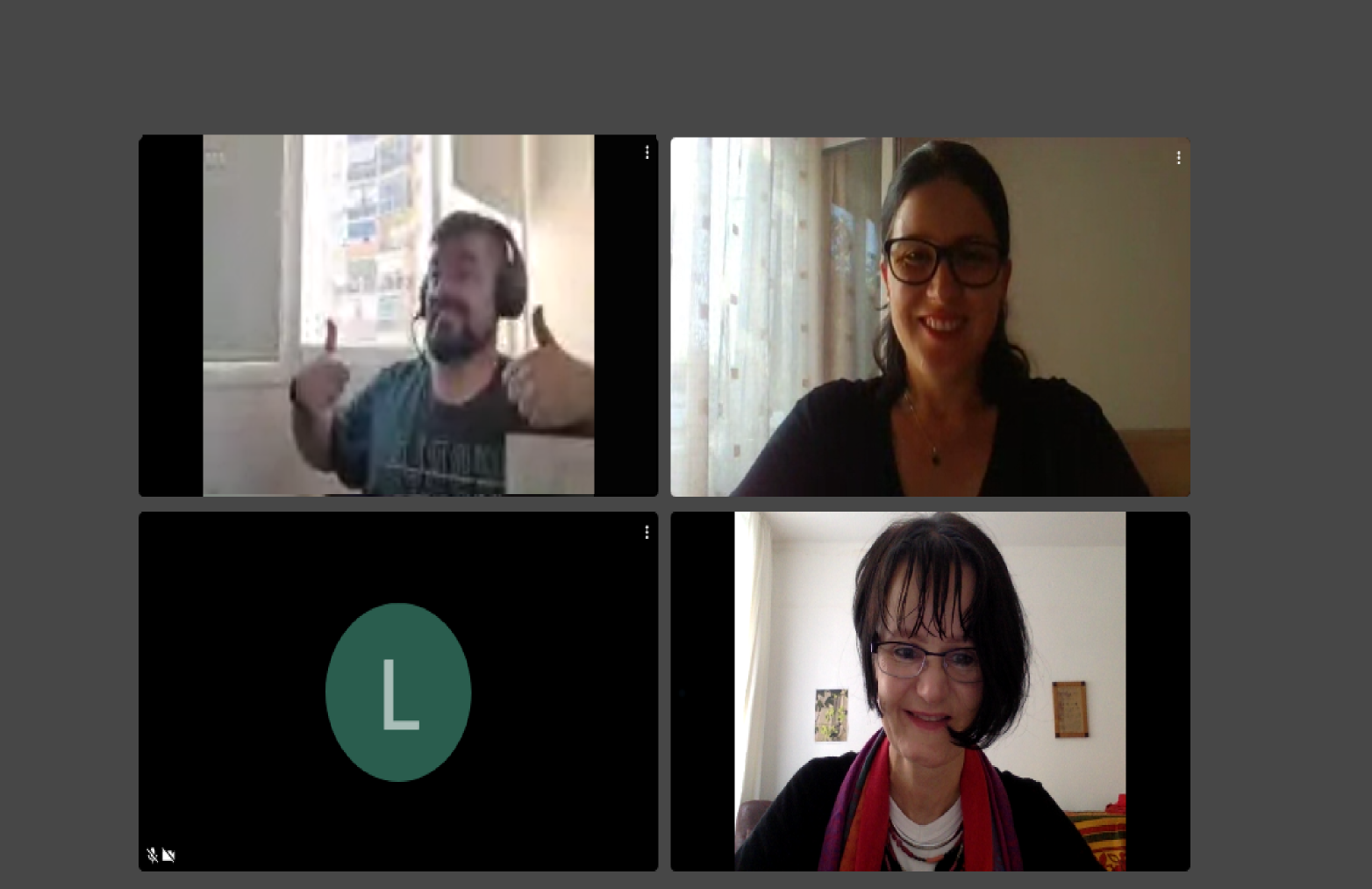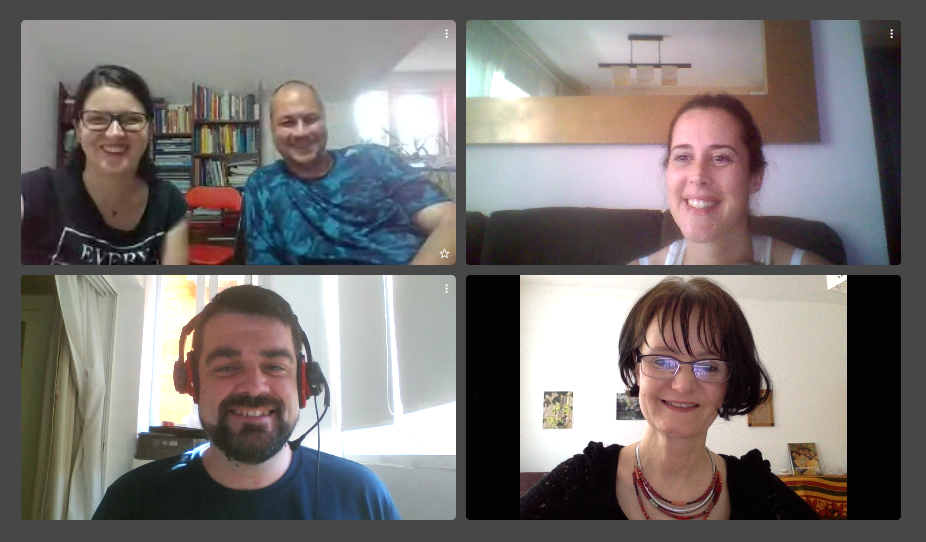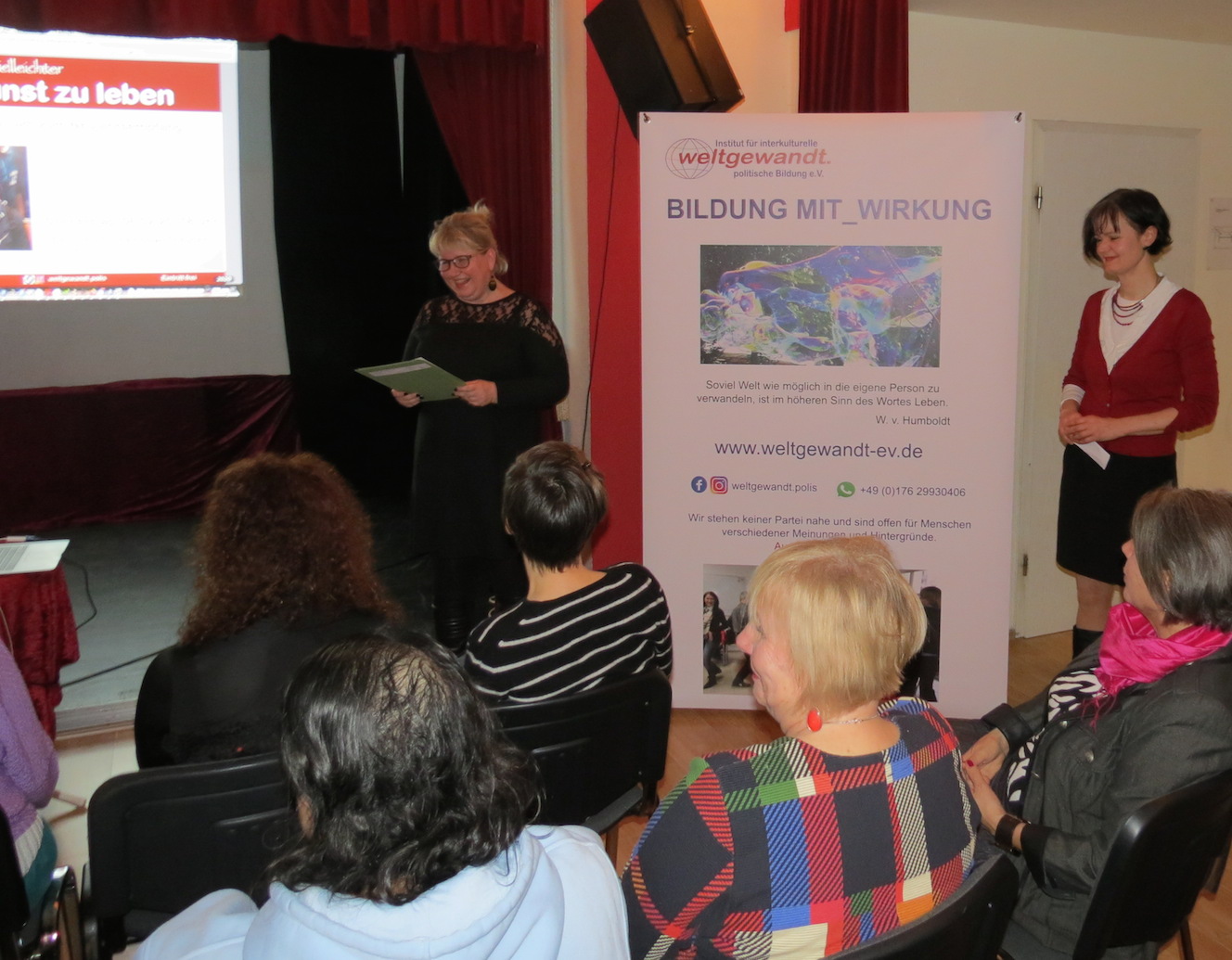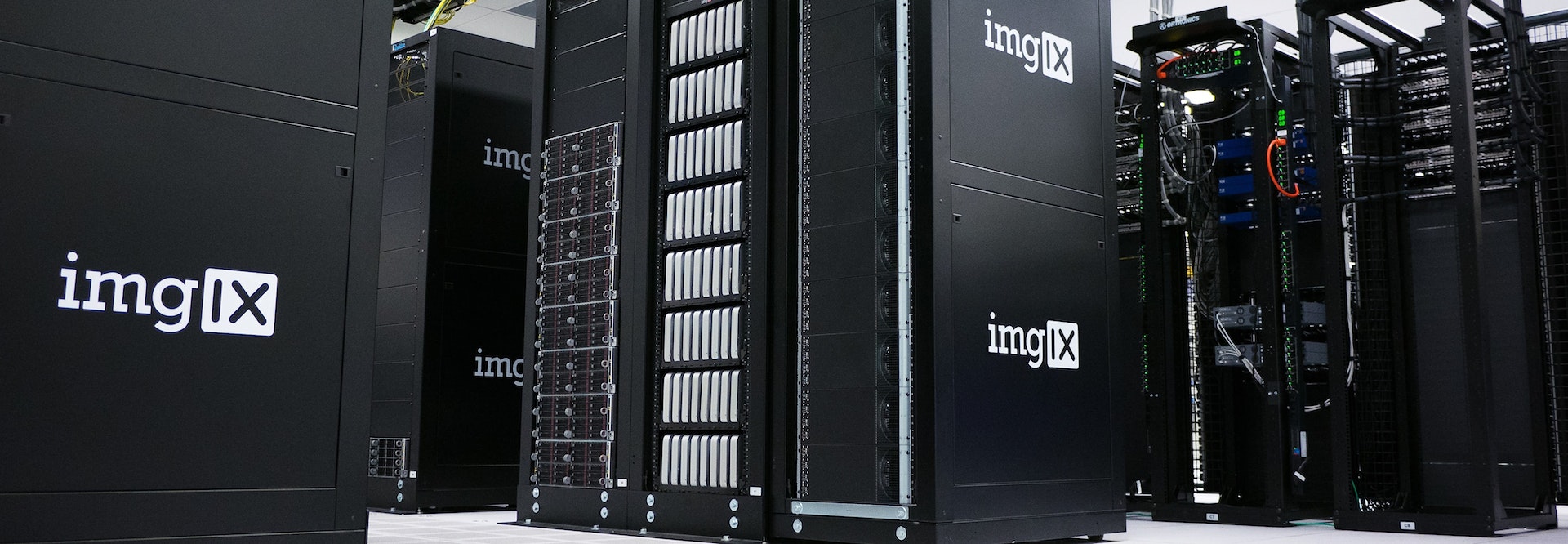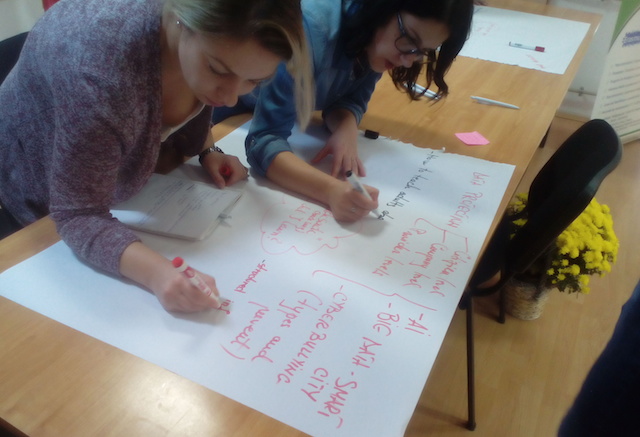Our final virtual project meeting on 31/08/2020 was dedicated to more practical questions: How can we move on disseminating our wiki after the project’s end? What about the project’s impact for the participating colleagues, its organisations, their local / regional surroundings? Which were the charming aspects of the whole project? What difficulties did occur and what to learn from them? What questions remain regarding the digitalisation? A meeting which showed that after 2 years we got quite familiar to each other and communication as well as cooperation works. 🙂
Virtual Project Meeting
Framatalk/Jitsi meet, GotoMeeting, ClickMeeting, zoom, Skype, Blizz, Adobe Connect, Nextcloud: Many video conferences take place in these Corona times. Ours on 25th June 2020 replaced a face-to-face meeting in Berlin. So, weltgewandt team members ‘welcomed’ colleagues from Romania and Spain virtually. One of the topics was the project’s wiki. The “Erasmus+ spirit” of cooperation and sharing knowledge was once again fully felt. 🙂
AMEFE Events – Malaga
We started the events for the dissemination of the project in Malaga, with the intention of reaching the maximum number of educational professionals, and to let them know about our work during the time we have been working on the project “Empowering Digital Literacy; DIGILIT”.
Below you can see a summary of our first event.
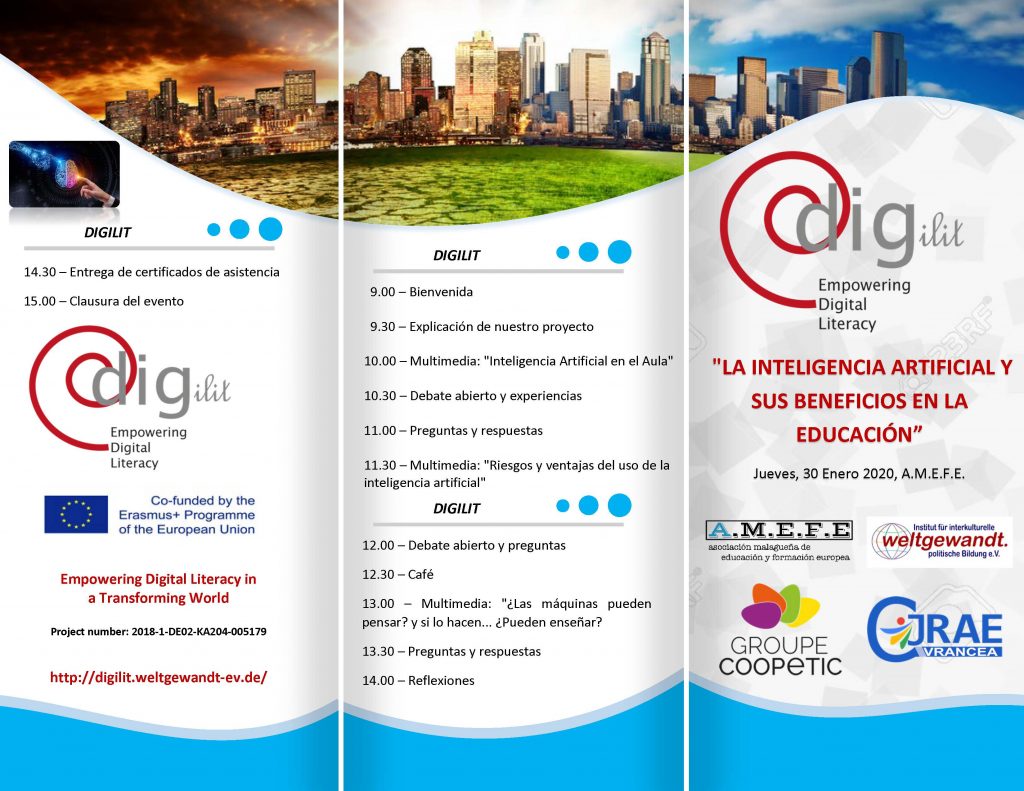
Digital literacy on the spot
weltgewandt e.V. presents the project in Berlin-Marzahn
This year’s New Year’s reception of weltgewandt e.V. on 6th February 2020 was held under the slogan «The art to live». An art of life may also be to cope with digitalisation. Smartphones, online meetings, artificial intelligence make many things easier. With big data and surveillance, however, digitalisation promotes developments that require democratic control. During the presentation of the DIGILIT project, these various aspects were discussed. At the end of the well-attended evening, one visitor said: «Now I understand much better what weltgewandt e.V. is making.“
The second local event was planned for summer 2020 and should be part of our project management course. However, due to the Corona Pandemic, this will be postponed.

Filter, Fake, Fidelity. The Current Structural Change of the Public Sphere
In times of internet and social media, there is a shift in the understanding of what public sphere might be. Wiki contribution about the democratic resources of public discourse, fakes and the need of fidelity. In German, soon in English, when the project’s wiki will be published.
Big Data
Wiki contribution to Big Data:
Big data refers to large amounts of data that are collected, stored, processed and analysed using specific methods. It is impossible to imagine the economy and society without data; it is obtained from people’s activities on the Internet and via mobile phones, it is the basis for activities on the financial markets, relevant in the energy industry, health care and transport; they are covered by the use of credit and customer cards, surveillance cameras, airplanes and vehicles, chatting via WhatsApp, postings on Facebook (or any other provider), the use of assistive devices such as Alexa or Siri, the use of fitness wristwatches and soon the use of “intelligent refrigerators”, the “intelligent”, smart table lamp, face recognition at train stations, body scanning at airports, “social scoring” and so on. and so on.
Data represent a significant economic factor and growth engine. The generation and use of data on a large scale also raises questions about the political control of developments: Who has access to the data? How can abuse of data be prevented, how can transparency be ensured? How can it be prevented that data is withdrawn from social, democratic control, for example by handing it over to secret services? Attempts to regulate the generation and use of data to protect personal rights are formulated in data protection regulations.
Click here for the full article. Enjoy reading!
Picture: imgix on unsplash.com
Analogue digital learning: workshop in Málaga/Spain, February 2020
Anaïs Girard-Blanc, free-lancer and filmmaker of the French partner organisation COOPETIC, has attended the Learning Training Teaching Activities (LTTA) in Málaga from 18th to 23rd February 2020. She made a short video to show how playful and cooperative but also very rich in content our exchanges were. Coopetic and the hosting Spanish organisation Ameyfe have joined their forces to present interactively how it is possible to cooperate with digital tools and to bring technological topics without technology on the agenda: exactly what could be of great use when we try to adress digital literacy!
COOPETIC has presented the Digilit wiki on the cloud expo in Paris
Isabelle Bohnke from Coopetic was present on the cloud expo in Paris the 28th november 2019 and has met the team of the XWIKI software development firma, who help us develop our wiki. They have published our exchanges on their blog; here.
Some feedback from the workshop in Romania
We have made a short video with pictures and interviews with participants of the workshop in Focsani/ Romania which took place in October 2019.
Artificial intelligence, big data, cyberbullying and more. Workshop in Focsani / Romania, Oct. 2019
Colleagues from all project’s partner organisations were hosted by the Romanian partner CJRAE Vrancea in Focsani / RO from 18th to 23rd October 2019 and experienced five rich days. The workshop’s focus layed on the history of digitalisation, artificial intelligence, cyberbullying and big data. For this, participants from the Romanian and the German team have written contributions to the wiki. They were subject by applying formal and non-formal methods in order to make digitalisation in its technical, social and political dimensions an issue of adult learning. Moreover, the group discussed the content of these contributions to be provided on the project’s wiki (still not published).
